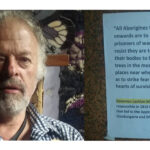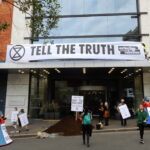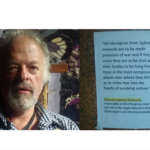As They Go Before a Sympathetic Judiciary, Climate Rebels Push for Prison Time

The position of Extinction Rebellion has been clear since the global environmental movement hit the international stage, when it occupied large sections of London in April 2019.
XR advocates taking nonviolent civil disobedience – the breaking of the law – to raise awareness and trigger climate action.
Initially, in Australia, this translated as masses of people getting out on the streets, with large numbers willing to be arrested over minor offences, such as obstructing traffic. But the COVID-19 virus and its threat of infection has hindered these demonstrations that had been ever-growing.
However, the accelerating climate crisis hasn’t locked down for the pandemic. Rather, the recently released IPCC report shows that climate targets governments were considering in 2015 are no longer viable, as global warming has ceased to be a pending threat, indeed it’s now at our front doorstep.
In response to the issues being posed by the virus, XR has determined that due to the dwindling numbers of street-ready activists, smaller bands of rebels should be taking nonviolent direct action more extreme in its impact, as well as have a willingness to serve actual prison time.
So, the recent spate of extreme climate protests staged by XR in Canberra were property damaging and extra confronting by design.
And while a number of activists did spend time on remand, climate rebels are repeatedly finding that members of the judiciary are unwilling to punish them.
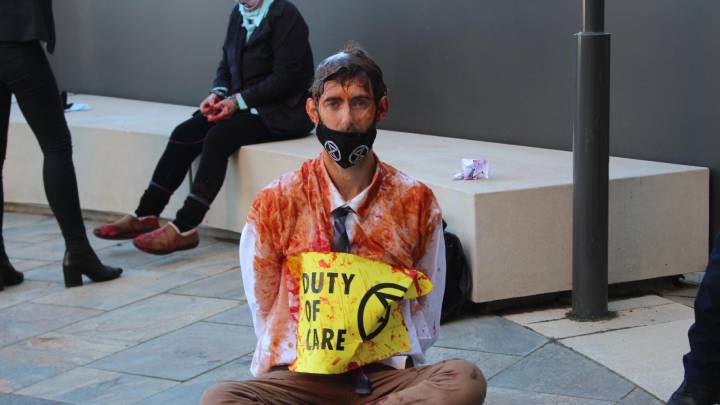
A small price for the planet
Andrew George recently spent seven days on remand in Canberra’s Alexander Maconochie correctional facility following his last arrest on 10 August over having spray painted “Duty of Care” in red on the front gate of The Lodge: the prime minister’s residence in the capital.
“In AMC we weren’t shot, tortured or starved, which are things that we know happen to people who are protecting the Earth across the world,” George told Sydney Criminal Lawyers. “It was really about weaponising my privilege to cause disruption day after day, which ended me up in prison.”
“For people like me, with immense white privilege, prison was the consequence I was willing to face for my actions. It’s hard inside, to lose contact with your loved ones and your autonomy, but I learned a lot about the systemic oppression that has led to so much incarceration,” he continued in regard to his time on remand.
“Furthermore, this loss of liberty is to be expected when citizens of a country rise up against the evil that’s affecting us.”
The 32-year-old engineer’s arrest followed a previous incident on 6 August, which involved George and other climate activists storming the foyer of the environment department, dousing themselves in fake blood and spray painting the walls of the government office’s foyer.
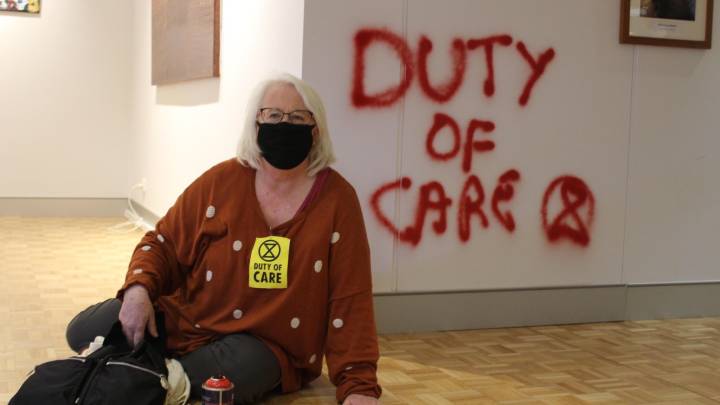
Shirking duty of care
The peak image of the recent series of XR direct actions was that of activist Violet Coco sitting beside a burning pram out the front of Parliament House, as other demonstrators spray painted “Duty of Care” on the building and its surrounds.
The five major direct actions that took place in Canberra were aimed at environment minister Sussan Ley, as the activists were calling upon her to drop a pending appeal against the Federal Court finding that the government must factor in climate harms to children in its decision-making.
On 8 July, Federal Court Justice Mordecai Bromberg formally declared that the minister has a duty of care to children ordinarily residing in Australia, in terms of their avoiding “personal injury or death” caused by changing climate , when making a decision on whether to greenlight a fossil fuel project.
George said XR is outraged that the environment minister is attempting to reverse a decision of the court to protect kids from extreme weather events going into the future, and he pointed to the findings of the IPCC report, which found the globe is in “code red” in terms of the need to act.
“It couldn’t be more dire, the urgency for us to turn the ship around before it’s too late. I can’t allow us to continue to fail each other, the world and future generations,” the XR activist stressed. “Because of COVID, we have to step it up and be more courageous with our actions.”
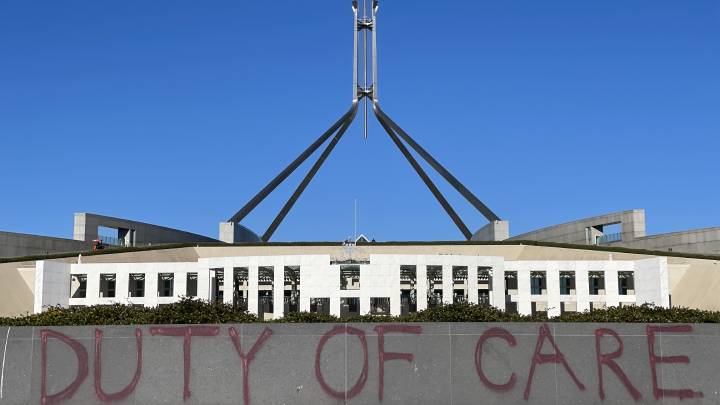
A sympathetic ear
For their efforts in attempting to preserve the planet for future generations, five Extinction Rebellion activists involved in the Parliament House and Lodge actions went before the ACT Magistrates Court on Wednesday. And four had their matters finalised with similar outcomes.
George faced two counts of damaging Commonwealth property, contrary to section 132.8A of the Criminal Code Act 1995 (Cth). This offence carries a maximum penalty of 10 years imprisonment.
The engineer represented himself and pleaded guilty to the two charges. And ACT Magistrate Peter Morrison recorded two convictions against his name and served him with two $20 fines. These same penalties were issued against the three other activists that were dealt with on the day.
According to Canberra XR rebels, these minor penalties for damaging significant government property are a reflection of the court’s sympathetic stance towards those raising awareness to the climate emergency, which was also displayed in the Federal Court duty of care ruling.
Prepared to face the consequences
Following the burning pram action at federal parliament, seven XR activists were remanded. And this is exactly what they were after, as, following their multiple arrests over the week prior, they kept stating they would not desist in their actions, yet they kept being released without bail conditions.
As George tells it, those involved in the Canberra actions were able to repeatedly continue on with them despite being arrested simply because the court was reluctant to place restrictions on their liberty. That’s until conditions were applied, and the activists chose to refuse bail.
“Ultimately, bail was opposed, and we were willing to go to prison and sacrifice our liberty. This is necessary for us to mature the movement,” outlined the XR activist. “We are going to have to be prepared for prison sentences if we are to really take this fight to the level that’s clearly needed.”
“If we get enough people in prison similar to other campaigns, like the Civil Rights movement, then we will cause such an embarrassment to our government internationally with peaceful climate protesters in prison,” he concluded.



